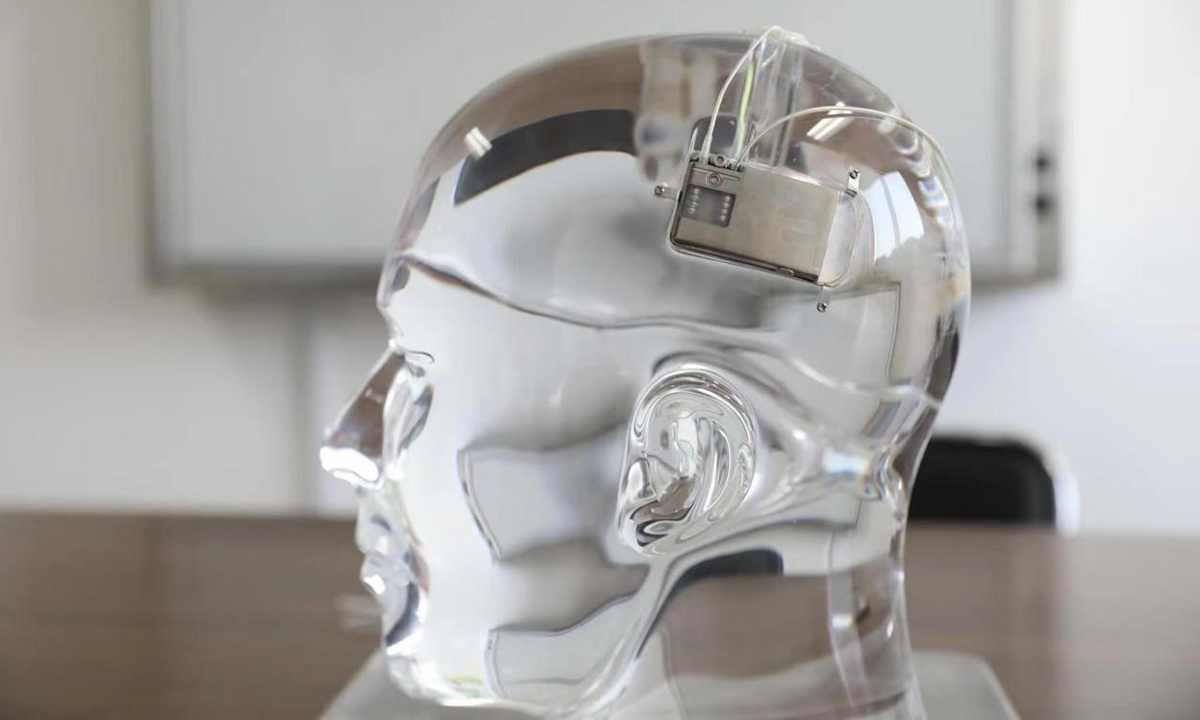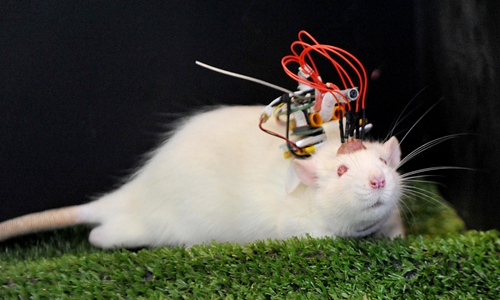SCI-TECH / BIOLOGY
Chinese team makes breakthrough in brain-computer interface for intractable epilepsy control

A demonstration of the closed-loop neurostimulator developed by Zhejiang University research team Photo: Courtesy of SAHZU
A Chinese research team has made an important breakthrough on the application of brain computer interface (BCI) after the country's first closed-loop neurostimulator has proved effective for epilepsy control in clinical applications.
The first epileptic patient who received an implant of China's first locally produced BCI closed-loop responsive stimulator was discharged on Wednesday from the Second Affiliated Hospital Zhejiang University School of Medicine (SAHZU), which marks an important breakthrough in BCI clinical research for the diagnosis and treatment of intractable epilepsy, Zhang Jianmin, Director and Professor at the Department of Neurosurgery at SAHZU and one of the leaders of the BCI clinical research team of Zhejiang University, told the Global Times on Thursday.
The closed-loop neurostimulator worked well on the patient after the procedure. The implant effectively detected several epilepsy seizure onset signals and delivered timely and accurate stimulus to suppress the seizures, Zhu Junming, Deputy Director of the Department of Neurosurgery at SAHZU said.
The closed-loop neurostimulator is an advanced technology based in the BCI technique to identify seizure events in the early stages and is able to deliver a therapeutic electrical stimulus in response to seizure onsets, according to the research team.
The BCI clinical research team led by Zhang and Zhu has been working hard to develop the country's locally produced closed-loop neurostimulators since 2010. It took the research team more than ten years to finally achieve a breakthrough, from technology to clinical application.
The closed-loop neurostimulator developed by the Zhejiang University research team has greatly improved the service life of the product through the use of wireless rechargeable technology and is smaller in volume and lighter in weight compared with similar foreign models.
Zhang said that the discharge of the first patient is a good start for the future clinical application of this technology. Clinical trials with larger samples will be carried out to promote the early application of new technologies to bring safe and effective new therapies to the majority of patients with intractable epilepsy in China.

